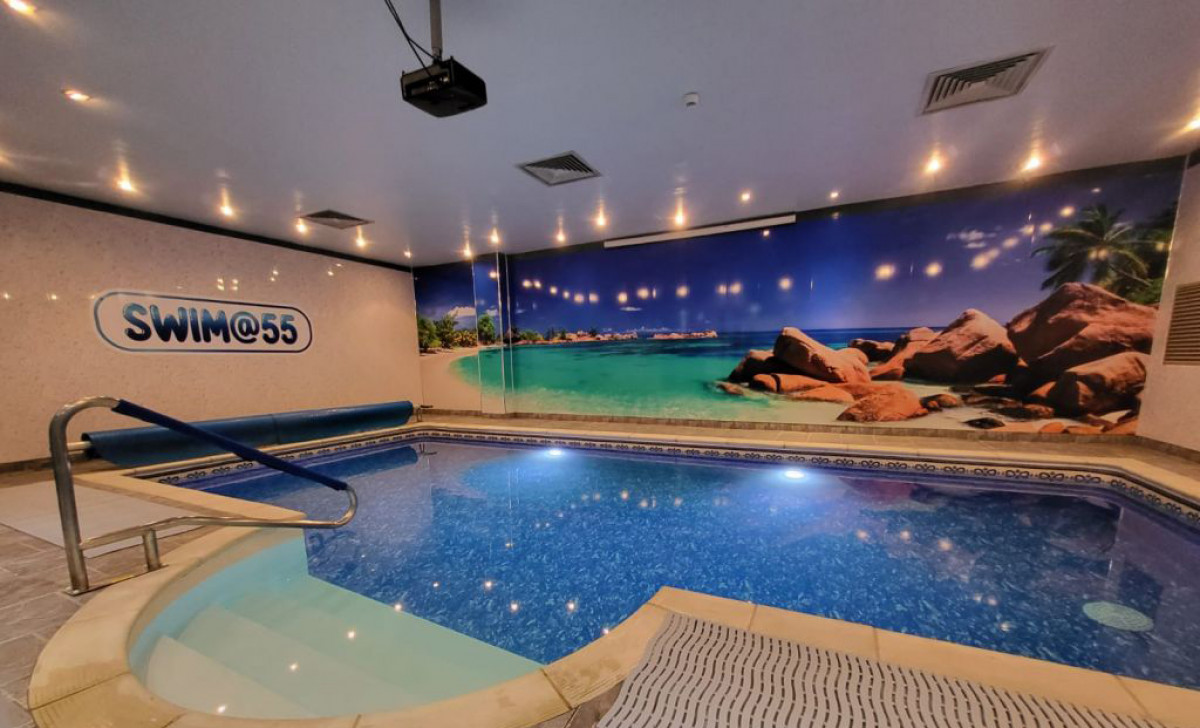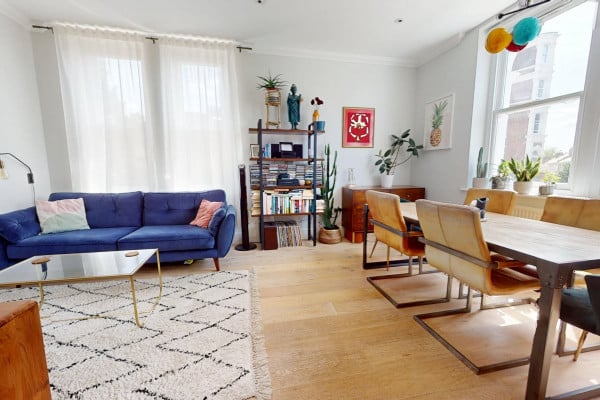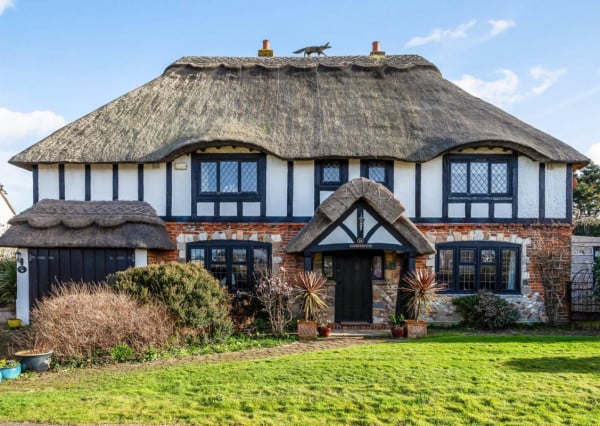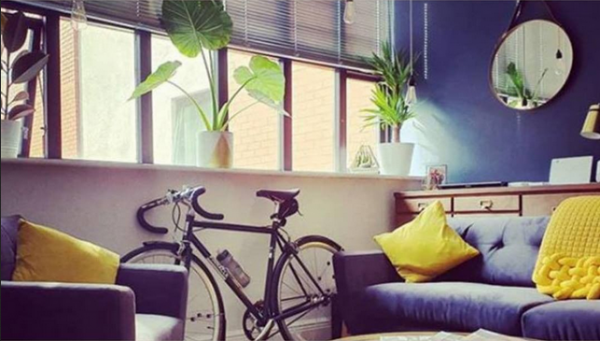What To Know Before Buying A Home With A Pool

A pool has long been seen as the ultimate luxury addition to a home, and for buyers seeking their next dream home, it could be the selling point that swings a particular property in their favour. But before you dive in and purchase a property with a pool, there are some important factors to consider about the upkeep and costs required.
This guide outlines the pros and cons of owning a home pool in the UK, typical costs based on different types of pools, as well as tips for evaluating potential pool properties so you go into your purchase with eyes wide open. With some diligent research and planning up front, a home pool can be an enjoyable investment.
The Pros of Buying a Home With a Pool
Despite the costs, buying a home with a pool comes with some great benefits that may make it all worthwhile for you. Here are some of the top advantages to consider:
Recreation and Family Fun
One of the best perks of having a pool is getting to swim and play right at home with family and friends. Especially during UK heatwaves, having quick access to a pool can provide hours of entertainment without having to travel and ensures you're really making the most of your garden. Host barbecues, pool parties or just casual family swims on hot summer days.
Enhanced Property Value
Adding an attractive pool can boost a home's value by as much as 20 percent in some cases. Pools are enticing amenities that capture potential buyers' interest and make properties stand out. Upgrading landscaping around the pool can further enhance the appeal.
Year-Round Access
Unlike public pools which close throughout the year, you can realistically use a home pool from April through October in the UK climate – and year-round if you buy a property with an indoor pool. Investing in pool heating systems can extend the season even longer so you maximise enjoyment.
Overall, a home pool provides lifestyle advantages other properties simply don't. If you'll use it regularly, the enjoyment, activities, health benefits and added property value justify costs for many homeowners.
Types of Pools and Associated Costs
When deciding whether to purchase a home with a pool, one of the most important considerations is determining what type of pool best suits your needs and budget. "The major day-to-day costs of running a pool revolve around the chemicals used to keep the water clean as well as heating the water. You may also factor in the general maintenance of the pool and the equipment", explains one leading pool manufacturer, "But it should be noted that there are many different ways to mitigate ongoing costs. For example, we do offer natural pools that do not require chemicals, and saltwater pools which contain less".
Inground pools are one of the most popular pool options. This style requires excavating a large hole and installing the pool structure within it. Concrete inground pools involve pouring concrete into forms to create the basin or having a liner shell installed.
Above-ground pools provide a more affordable alternative, sitting on top of the ground rather than digging into it. Pre-formed plastic or metal structures simply need a level surface to install on. Fibreglass or ceramic pools offer a durable pre-moulded one-piece shell that can last over 20 years, but typically cost more upfront. Annual maintenance costs for a pool typically range from a few hundred pounds to several thousand, depending on the exact size and materials. For example, a natural pool will require less upkeep in the form of chemicals and filters than a standard pool.
What to Consider Beforehand
As you search for your dream home, a glistening pool may catch your eye and captivate your imagination. But before you dive right into a purchase, here are some important considerations to evaluate.
First, if you'll have young children, non-swimmers or pets around the pool, safety is likely a prime concern. Ensure fencing, gates, alarms, signage and other precautions are adequate and meet any requirements. It's also a good idea to ask the current owners about previous accidents or near incidents, so you can take necessary precautions if you buy the property.
You also want to envision who will primarily use the pool and for what activities. Will disabled family members be able to access and enjoy it too? Check features like ladders, stairs and lifts are in working order to ensure your whole family can enjoy it.
Ask the sellers to outline maintenance schedules and expenses, and review chemical monitoring logs, equipment servicing and issues that arose. This will clue you in on the overall condition of the pool and how much future upkeep may cost you, if you sign on to the property.
If you're new to pool ownership, it may be worthwhile to arrange a pool inspection to assess elements like pumps, filters, covers and cleaning systems. Old equipment approaching replacement will add costs and downtime, so ensuring it's all working well now and evaluating energy efficiency for heating expenses will save you in the long term.
While a sparkling pool seems idyllic, smart preparation avoids jumping into the deep end regarding safety, costs and functionality. Inspect, enquire and evaluate thoroughly before signing on any property's dotted line that has a pool. Protect your investment through diligent assessment from every angle. A bit of upfront effort ensures your new pool paradise doesn't turn into a maintenance money pit.
An at-home pool can provide years of enjoyment and add significant lifestyle value to your home, but also requires a substantial commitment in ongoing costs for operation and care. Weigh the pros and cons carefully based on your budget, intended use and who will be swimming. Should you decide to take the plunge into pool ownership, understanding the differences between types of pools along with anticipating regular maintenance needs and expenses will help set realistic expectations from the start.
Image is from an amazing 10 bedroomed mansion set in private gated grounds in Crewe available for sale December 2023. For the full listing, please click here.

When Property Offers Fall Through: A Guide for Sellers and Buyers
25.06.2025One of the biggest worries for anyone buying or selling a home is the possibility of the deal falling through. And it's a valid concern - nearly 29% of property sales in the UK didn't make it to completion in 2024. Whether due to cold feet, poor survey results, or mortgage issues, it's more common than most people think.

The Best Building Survey if You're Buying an Older Property
05.06.2025Buying a property is a big decision by anyone's standards, which is why it's important to view one with a practical hat on rather than being ruled by your heart.

Hidden Costs Revealed: What Your Survey Might Uncover
21.07.2024Buying a home is a major financial commitment and for most of us, it's the biggest purchase we'll ever make. Whether this is your first time stepping on the property ladder, you're an existing homeowner or you're investing in a property for commercial purposes, checking things out thoroughly is always essential. One of the most effective tools to assist with this is a property survey but, what might a survey uncover and how will that affect your property purchase?

How to save money when buying a home
05.05.2024So, you're thinking of buying a new home? That's great news! Is it a trendy three-bed terrace in a cul-de-sac? Or do you fancy a penthouse apartment with city views? Whatever the property type, we're sure you're excited about your soon-to-be new home.
.png)
How Long is a Property Chain?
22.04.2024In case you don't know by now, a property chain is when multiple transactions are linked together and need to be completed at the same time for each sale to be successful. However, many buyers and sellers often wonder about the length of a property chain.
.png)
How to Get a Bigger Mortgage
22.04.2024Unfortunately, bagging your dream home can be curtailed by a number of things. Being unable to get a big enough mortgage can be an issue that arises.









